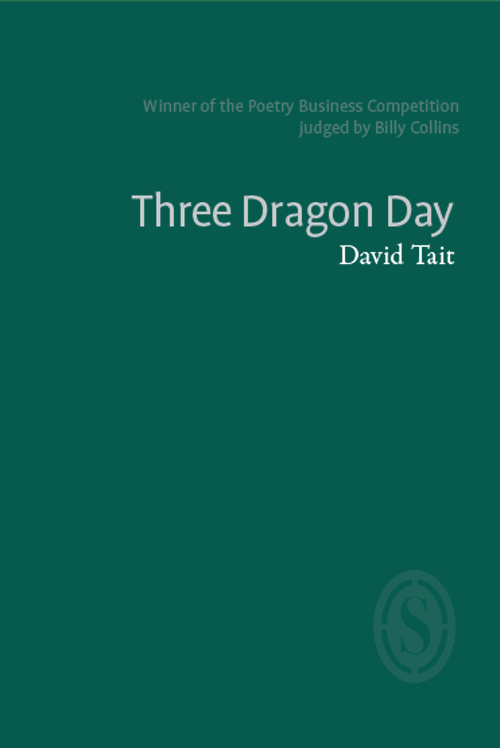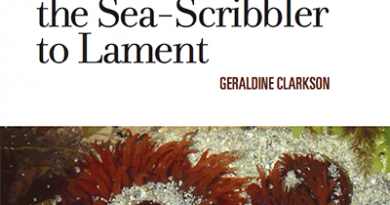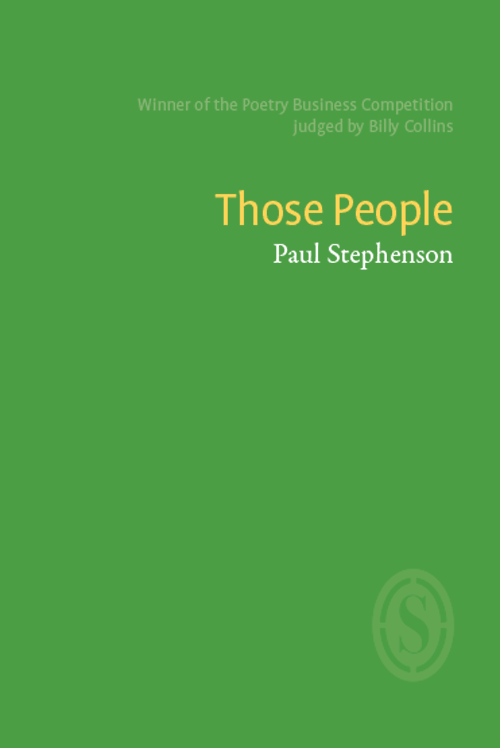Three Dragon Day by David Tait
– Reviewed by Jennifer Wong –
In remarkably original and lyrical language, David Tait’s Three Dragon Day reveals customs and social inequalities in contemporary China from the perspective of someone who is at once an outsider and a participant.
Tait possesses a wonderful ability to articulate with candour and precision. His poetic sensibility reflects on meanings and language, the interface between history and contemporary society, exposing the hidden dangers of China’s overheated economy.
A number of poems in this prize-winning pamphlet focus on the environment and long-lasting effects of pollution in the urban areas: the cost of growth. For example, ‘The Air’ describes the sense of inescapable danger permeating the air and infiltrating the lungs, air that ‘pants’ and ‘buffets’ and walls that ‘sweat’. In ‘Self-Portrait with Facemask’, the poem warns that the city-dweller can no longer survive without a facemask: surreal imagery of an oppressive, artificial world.
Throughout the pamphlet, Tait shows attentiveness to form, language and voice. In ‘Lunch Poem’, the cicadas are an ‘orchestra’ imitating socialist ideology-speak, a language highlighting the impossibility of workers’ escape from their grinding duties:
It is then that the Guangzhou Treetop Orchestra of Cicadas launches into its great insecty Opus:
GET UP! BUILD! CREATE!
In the poem ‘无辜’, the poet catches the reader’s attention with a title in Chinese, meaning ‘innocent’. He describes an anxious man who jumps from a roof, but refuses to explain what causes his suicide, nor does he pin down the nature of the protagonist’s claim to innocence. The declarative title of the poem in Chinese, together with the final imagery of unsympathetic policemen keen to dismiss the suicide as an accident, speaks powerfully of the struggles of the working classes against various forms of social injustice.
Tait’s adept humour makes his poetry meaningful as well as enjoyable. ‘Two Vans’ captures the psyche of a pregnant woman whose choices are limited to two vans:
If it’s a boy she will hand in her notice.
If it’s a girl she will schedule another appointment
with the man who drives the black van.
Half-told in repressed language, the painful necessity of abortion, arising from the one-child policy and the preference for boys in Chinese culture, preys on the reader’s mind.
While the majority of poems demonstrate Tait’s strength in creating accessible, evocative poetry, his bolder, surreal imageries are what really capture my attention and affirm his craft. ‘Crux’ is a perfect example. With night traffic in the background, the poet’s mind drifts to the lives of those in the rapidly developing city who are deprived of ‘the intimacy of stars’. At the end of the poem, evoking the surreal, his thoughts dwell on the irreparable loss of childhood:
A boy is playing violin for his grandparents.
They wear smiles and seem to be clapping.
Someone has cut out his eyes.
The imagery suggests that some sinister, invisible force has deprived the boy from ‘seeing’ and enjoying life, asking whether the people have lost the ability to experience authentic happiness in a society that so emphasises tangible achievements.
Altogether, this wonderfully rich and thoughtful set of poems affirms Tait’s poetic craft and originality, as well as his powerful, accessible voice. I look forward to reading his next book.





